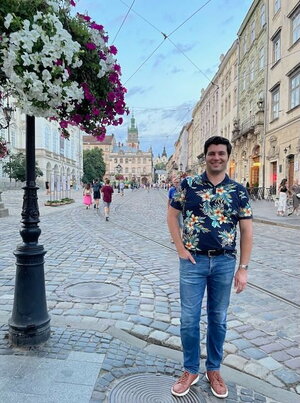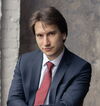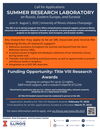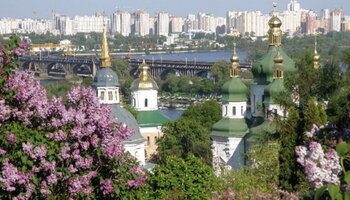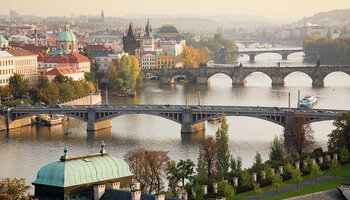Russian, East European, and Eurasian Center
REEEC at Illinois
The Russian, East European, and Eurasian Center is home to a wide variety of programs for members of the university community and the general public designed to expand understanding of and promote knowledge about Russia, and the countries of Eastern and Central Europe, the Balkans, the Caucasus, and Central Asia. REEEC receives major support for programming and FLAS fellowships through the U.S. Department of Education through its Title VI program, for which REEEC serves as a designated National Resource Center.
Featured News
- In October 2024, the Russian, East European, and Eurasian Center (REEEC) hosted three Ukrainian scholars as part of the BridgeUSA Ukrainian Academic Fellows Program (UAFP). Sponsored by the U.S. Department of State and... Read full story Building Bridges: Ukrainian Scholars Visit University of Illinois
- REEEC at the University of Illinois Urbana-Champaign is pleased to welcome two new Nonresidential Fellows from Ukraine to our campus community: Oleh Bahmet and Vladyslava Moskalets. These two scholars join our community in the Spring 2025 semester as part of the IU-Ukraine Nonresidential Scholar... Read full story REEEC Welcomes Two Nonresidential Fellows from Ukraine
- We're very pleased to announce that Dr. Markian Dobczansky will become the new Associate Director of the Russian, East European, and Eurasian Center at Illinois, starting on November 18th. Dr. Dobczansky is an experienced researcher, teacher, and administrator who has broad intellectual interests... Read full story REEEC Welcomes New Associate Director, Dr. Markian Dobczansky

M.A. REEES/M.S. LIS Student Spotlight: Joseph Mosse'
Joseph Mosse' is a first-year student in the dual M. A. Russian, East European and Eurasian Studies and M. S. in Information and Library Science. He was born in Fullerton, California, but grew up in Ukraine, mostly in Odessa. He received his B.A. in Social Studies Education, with concentrations in Historical Perspectives and Government and Citizenship from Taylor University in Indiana and taught High School Social Studies for four years. After Russia's full-scale invasion of Ukraine in 2022, Joseph moved from teaching to humanitarian aid work in Europe and the United States....
More News
- 2024-11-14 - REEEC is pleased to welcome to our academic community Illinois Scholar at Risk Maxim Krupskiy. Maxim Krupskiy joined the Illinois Scholars at Risk Program in the fall of 2024. He holds a Ph.D. in Philosophy, and is a human rights defender and attorney-at-law with more than twelve years of experience practicing law in Russia. Throughout his work, he has worked with many Russian and international...
- 2024-11-05 - The Russian, East European, and Eurasian Center and the Slavic Reference Service at the University of Illinois Urbana-Champaign are accepting applications for our 2025 Summer Research Laboratory (SRL) program. The SRL is an in-person program that offers comprehensive research support, access to library resources and competitive Research Awards to...
- 2024-09-09 - This fall, the University of Illinois Urbana-Champaign welcomes a distinguished cohort of Ukrainian scholars as part of the BridgeUSA Ukrainian Academic Fellows Program (UAFP), an exchange initiative sponsored by the U.S. Department of State's Bureau of Educational and Cultural Affairs and...
